
Timeline

Alexander the Great
"The Visionary"

Hadrian
"The Architect"

Marcus Aurelius
"The Philosopher"

Septimius Severus
"The Wolf"

Postumus
"The Rebel"
Timeline

Timeline

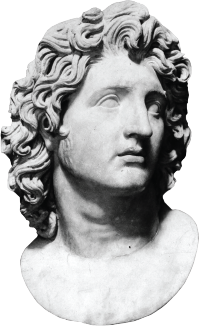
So staggering was the vision of Alexander the Great that to comprehend it, humanity had to stretch its understanding of the size of the world and what could be achieved within it. Alexander III of Macedon, commonly known as "Alexander the Great", was born in Macedon in 356 BC. Thrust into power when his father Phillip II died, he succeeded the throne at age twenty. Fortunately, his extraordinary tutelage meant he was up to the task — Alexander was a student of the great philosopher Aristotle, who was himself the pupil of Plato, who was in turn the student of Socrates. In this way the world's most enlightened line of thinking, passed on by master philosophers, found its way into the hands of a man who had the power to put it into action and spread it across the globe.
A masterful general and tactician who inherited one of the most experienced armies on Earth, Alexander had an almost mythical ability to anticipate the moves of his opponent. Alexander was undefeated in battle, and many of his tactics are still taught in military academies to this day. By age thirty he had defeated the Persians to create the largest empire in the ancient world, stretching from Greece to India. Julius Caesar famously wept at the feet of Alexander's statue for having accomplished so little by the same age.
In his wake Alexander left a trail of new cities bearing his name and the seeds of Greek thinking and philosophy. The growth of these seeds had far-reaching influence, from Rome, to the Golden Age of Islam, to the Italian Republics, to the Enlightenment, to us today. In fact, you are likely reading this from a Republic based on Plato's Republic, spread by the sword of Alexander.
Exhausted and longing to return home, Alexander's men refused to march beyond western India, where he finally agreed and began the long journey back. In 323 BC Alexander reached Babylon but fell ill and died, leaving behind the greatest empire on Earth. It’s no wonder the Greeks believed Alexander to be a demigod descended from Hercules, who is depicted on his coin wearing the skin of the Nemean lion — no man had ever dared ask the universe for something so grand and had his wish granted.
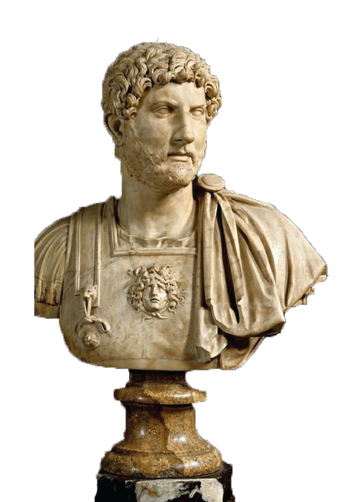
The Pantheon. Hadrian's Wall. The Temple of Venus and Roma. These and other prominent works of Roman architecture are owed to Emperor Hadrian (117-138 AD), known for his skill drafting blueprints as exquisite as his battle maps. After taking power and securing the capital, Hadrian set upon a 12 year expedition across his empire in which he laid the foundation for new municipalities, constructed extensive road systems, and nourished his new creations with water from Roman aqueducts. He also erected impenetrable fortifications such as Hadrian's Wall, a 75 mile long military monument which cemented Rome's restoration of order in Great Britain.
Hadrian’s mastery of stone, however, was rivaled only by his mastery of shield. A meticulous commander, he devised Rome's most intensive military drills and war games, personally inspected his armies, and infused Roman troops with a level of discipline than made them virtually unbreakable. Historians would later credit Hadrian's vision and steady determination, combined with prudent expansionary restraint, with strengthening the core of the empire so comprehensively that it laid the foundation for over a century of Roman dominance.
Beyond architect and general, Hadrian was also a benevolent humanist and patriot, earning him recognition as the third of the Five Good Emperors. His progressive reforms included revising the judiciary and financial systems, developing a permanent civil service, and expanding of the rights of women and slaves.
For those whose passions lead to awe-inspiring works that stand the test of time, let Emperor Hadrian guide you.
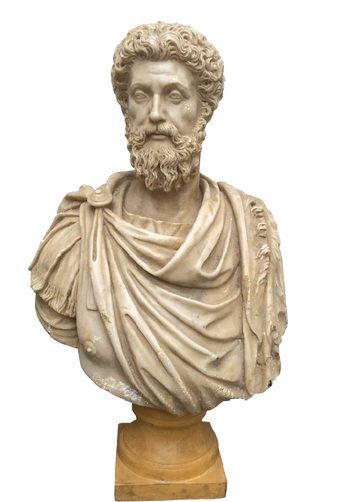
A man whose pen strokes still guide the minds of the world’s deepest thinkers, Marcus Aurelius (121-180 AD) was a titan of virtue and leadership. Despite presiding over a Rome grappling with external threats, Marcus’s first actions would strengthen his empire from within - aiding the poor, granting fair pay to the military, boosting the economy, and encouraging free speech, the arts, and education.
After defeating the Parthians to the East, Marcus led his troops North to defend Rome from a ferocious barbarian invasion. It is during this campaign that he would write 'Meditations', a philosophical masterpiece that would be his most enduring legacy. Inspired by the Stoic discipline of Spartan warriors, 'Meditations' is a window into a man's mental workshop; one in which an Emperor of colossal virtue and character is sculpted one thought at a time. In it we witness a man counsel himself through darkness to find peace both for himself and his empire, and generations of leaders still draw from its pages for lessons on handling adversity with discipline, benevolence, intelligence, humility, rationality, and dignity.
Marcus led Rome to its peak, in which a full third of the world’s population enjoyed an unprecedented period of prosperity known as Pax Romana, and he died as last of the Five Great Emperors.
For those whose minds echo with the deepest wisdom of the past, let Marcus Aurelius guide you.
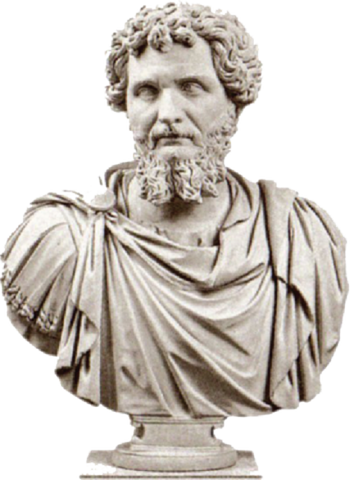
Times have changed since the noble reign of Marcus Aurelius. Roman leaders either sprouted eyes in the back of their heads, or paid with them. With Commodus and his successor slain in assassination plots, the throne was auctioned off to a hated senator. So red with regal blood was 193 AD that it was known as “The Year of Five Emperors”. But more blood would come, for three powerful men — Albinus of Britain, Niger of Syria, and Severus of Pannonia — all vied for the purple robe, setting the fire of civil war ablaze. And in that fire that a master strategist, negotiator, and the next sole ruler of Rome was forged: Septimius Severus.
Upon news of the assassinations, Severus (193-211 AD) immediately marched towards Rome with unstoppable conviction, deflecting the Senate's attempts to murder, bribe, and trick his army with cunning and grace. By the time he reached the capital, the Senate had killed their false leader and fell to its knees to beg forgiveness. With Rome secure, Severus then set upon a 5-year masterwork in powerbrokering in which he placated rival factions, crushed General Niger in Syria, and prepared to face Albinus to the North. With armies of 150,000 men each, their troops smashed against each other in the greatest and bloodiest of all clashes between Roman forces, leaving Severus victorious.
Despite this victory, the next 15 years were rife with plots, wars, and internal strife, all of which Severus handled with his signature guile. Never falling to his enemies, Severus died of illness in York and successfully passed the throne, and his legacy, to his sons.
For those wolves among men who employ cunning to outwit their opponents, let Emperor Severus guide you.
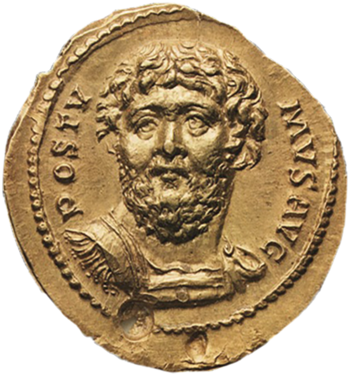
The year is 260 AD and the empire is crumbling. Wars with Persia and Danube have ensnared Rome and distracted Emperor Valerian, leaving the empire's northern provinces exposed and neglected. Exhausted from barbarian pillaging, Frankish invasions, and the enslavement of Romans by the thousands, the people live in fear, dreaming of the peace and security they once enjoyed.
Enter Marcus Cassianius Latinius Postumus (Reign: 260-269 AD). A man of proud tribal origins, Posthumus quickly rose within the ranks of the Roman army but watched his people suffer under the weak leadership of Valerians’ grandson, a child sent to oversee the North. Promoted to Imperial Legate and angered by the Juthungi enslavement of his people, Postumus quickly mustered an army to intercept the Juthungi as they marched their captives home.
After crushing the Juthungi army and freeing the enslaved Romans, the troops saw in Postumus that which they so desperately needed — a hero of the North. And thus, at great risk to themselves, they overthrew Roman rule, rebelling and proclaiming Postumus the emperor of an entirely new world power — the Gallic Empire.
With his singular focus on protecting the northern provinces, Posthumus earned the immediate support of Brittania, Hispania, and Gallia. He set about his agenda with patriotic fervor, pushing back the Germanic invaders and securing the borders of his new empire. In doing so he earned the admiration of his troops, his people, and historians who celebrated the return of peace and prosperity to a land seemingly forgotten by Rome. Despite being dubbed 'Conqueror of the Germans’ and 'Savior of Gaul’, Postumus remained humble and focused, never overextending or succumbing to the allure of southward expansion over Rome. The North was once again safe, and his duty therefore fulfilled.
For those whose righteousness would sooner accept rebellion than inaction, let Postumus guide you.
